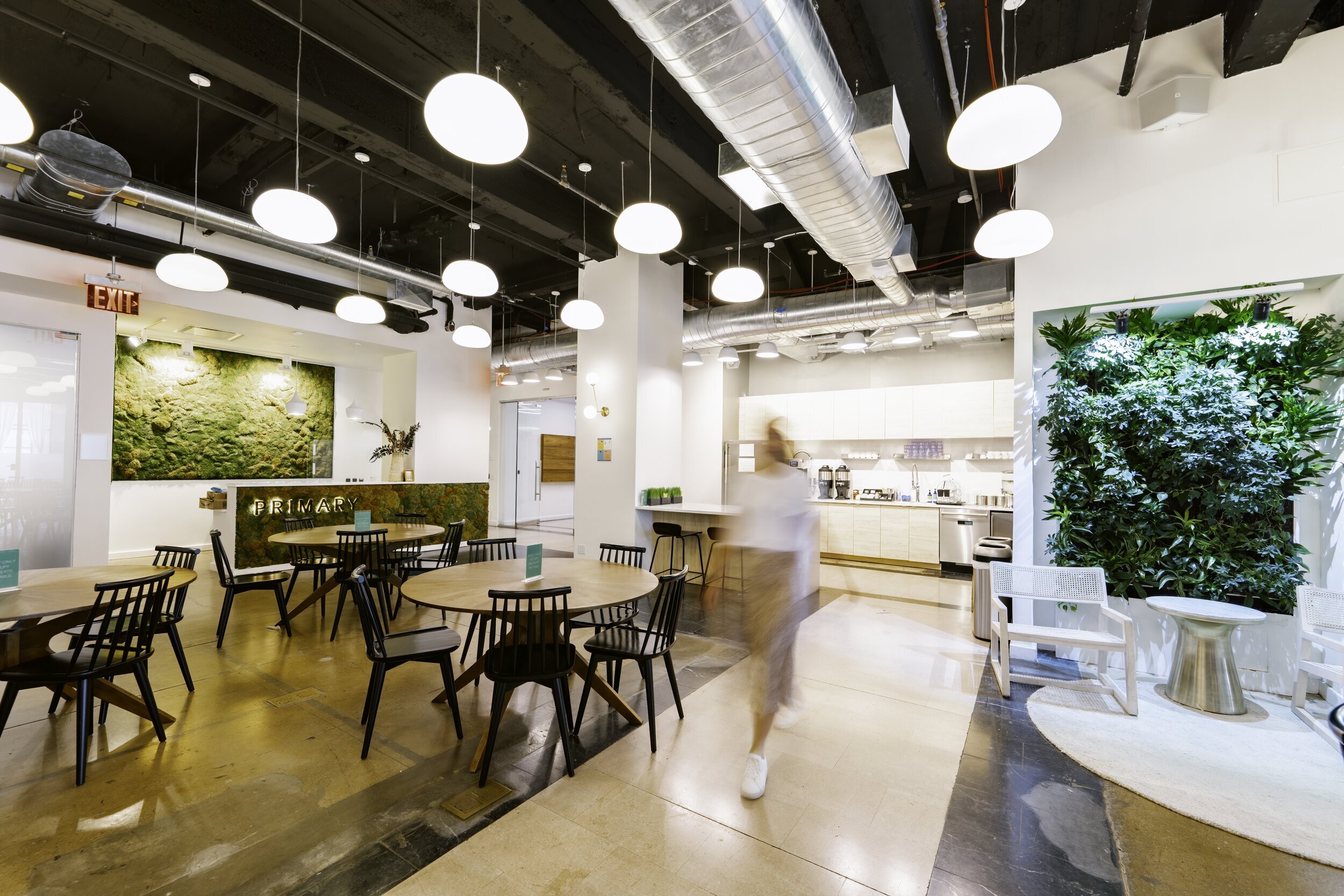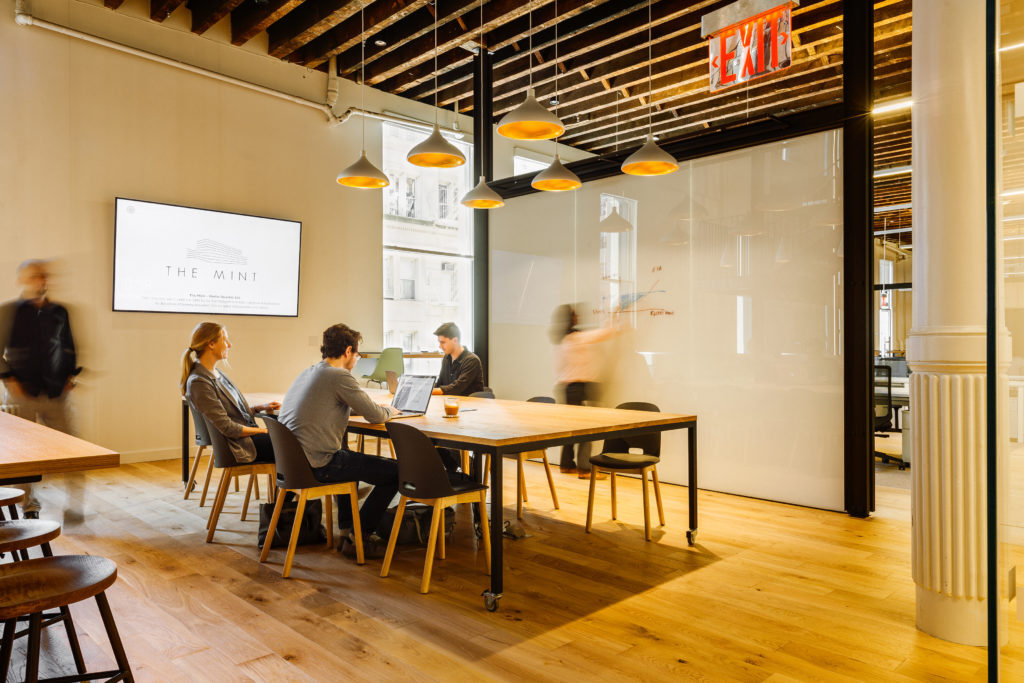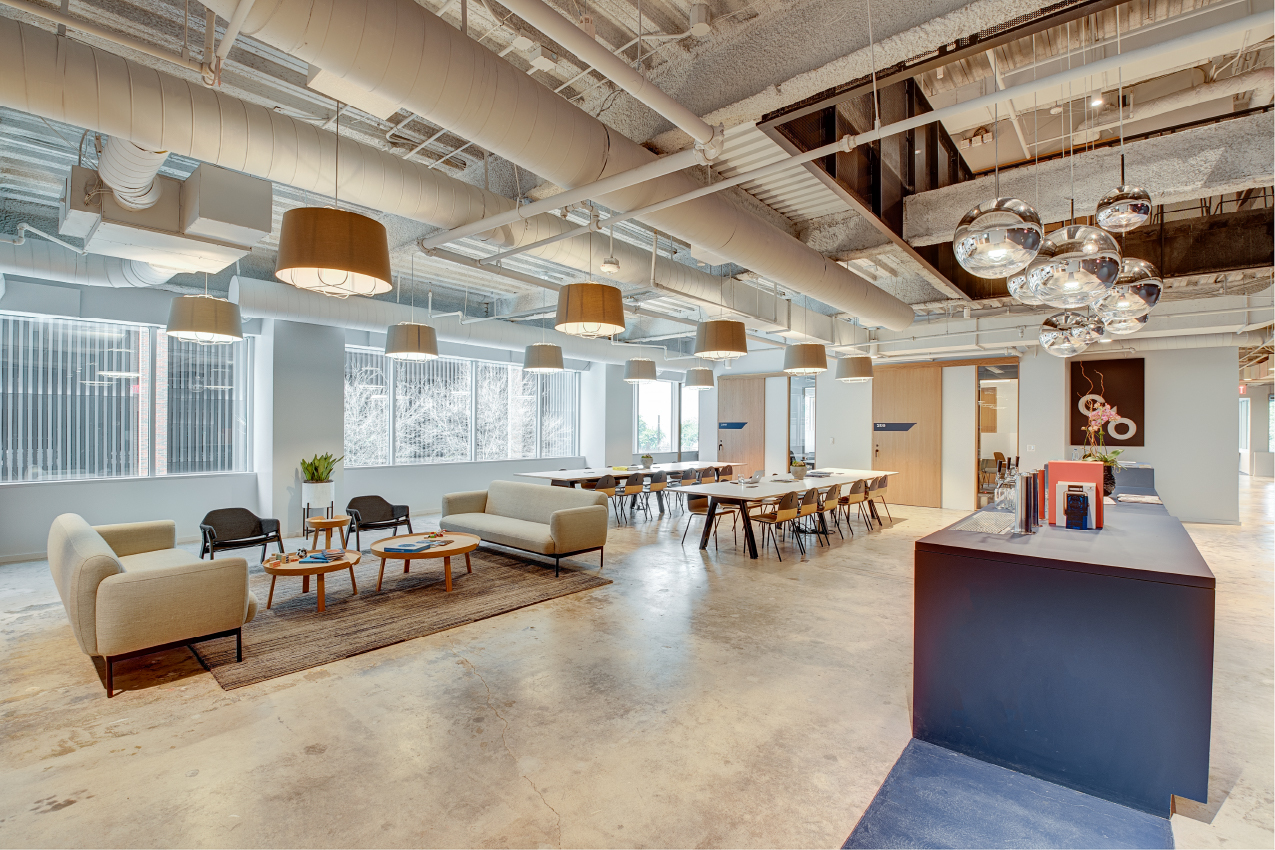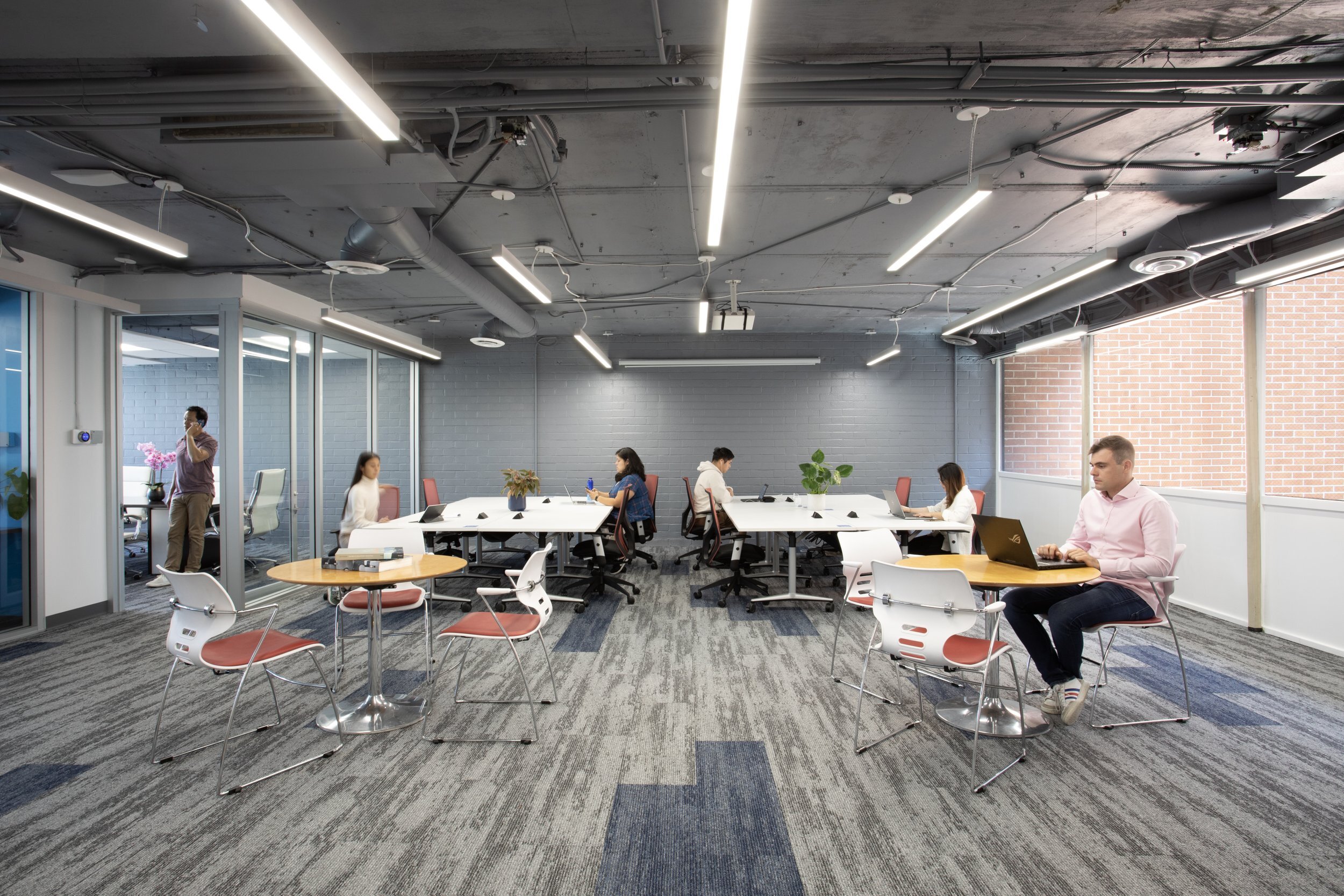The office has always been more than just walls and desks—it’s where ideas are born, problems get solved, and careers are forged. But the way we work is changing, and the traditional office model is struggling to keep up. From isolating cubicles to distracting open-plan offices, many workplaces haven’t evolved to meet the needs of today’s dynamic workforce. The evolution towards more adaptive work environments is embodied by the flexible office, which allows employees to choose from various work areas, easily scale up or down depending on company growth, and fosters creativity while optimizing productivity.
Today, flex spaces are changing the way we work and shaping commercial real estate for the better, and they’re designed to match the way each person works best. Flexible office spaces play a crucial role in meeting the diverse needs of today's workforce, offering scalability, cost-effectiveness, and adaptability to changing needs such as social distancing guidelines. To understand why flexible spaces are so effective in supporting today’s workforce, let’s look back to understand how work has changed.

The rise of cubicle culture in traditional office spaces
The late 20th century saw the widespread adoption of cubicles, designed to maximize office space in traditional office spaces while providing workers with a semblance of privacy. While cubicles addressed certain efficiency needs, they resulted in a segmented workforce, hampering spontaneous interactions and creativity. They’re more economical than they are inviting and have a less-than-stellar reputation among workers. Today, cubicles are on the outs—particularly in workplaces that value team cohesion and collaboration.
The shift to open-plan offices
In response to the drawbacks of cubicle culture, the open-plan office emerged, promoting transparency, community, and collaboration by eliminating physical barriers. Despite its intentions to boost interaction and productivity, the open-plan design faced criticism for its lack of privacy, constant distractions, and inadvertently, a decrease in employee satisfaction. While the open office floor plan removed physical barriers, it introduced a constant cacophony of stimuli that can make it difficult to stay focused.
The start of flex space transforming into ‘traditional’ office space
The most recent evolution in commercial real estate is the rise of flex spaces. This shift extends beyond physical layouts to embody an adaptable environment that supports various working styles and preferences, emphasizing the importance of an agile office layout that can meet social distancing guidelines, enhance productivity, and address the changing needs of the workforce with minimal disruption. The hallmark of flexible spaces is the “desk for a day” concept, where employees select their workstations based on their daily working needs, allowing for the customization of space requirements to meet the specific needs of businesses, whether it's for office, retail, warehouse, or project requirements. Flex work also accommodates work from home (or just about anywhere), making it easier for employees to achieve work-life balance, while continuously evolving the workspace to suit the needs of the workforce with minimal disruption.

Unlocking the benefits of flexible workspaces
Flex workspaces provide cost efficiency that appeals to many businesses, allowing them to save on overheads and invest more in their core activities. The scalability of these spaces is particularly beneficial, as companies can easily expand or reduce their footprint according to business needs, including the need for more office space as they grow. This adaptability ensures long-term stability, making flex spaces a reliable investment that can withstand economic fluctuations and maintain consistent demand.
The shift towards flex spaces offers a win-win situation for both businesses and employees. Here’s a closer look at their compelling benefits:
For businesses
Unmatched cost efficiency. Flexible workspaces eliminate the financial burden of long-term leases and underused office space. With utilization-based pricing models, you only pay for what you use, for significant overhead savings.
Scalability for success. Whether you’re experiencing rapid growth or need to downsize quickly, flex spaces allow you to easily adjust your real estate footprint. You also avoid the expenses of sourcing, furnishing, and managing a traditional office space.
Talent attraction and retention. Offering flexible workspace options can be a major differentiator for your business. It demonstrates a commitment to employee well-being and can boost your appeal to top talent seeking work-life balance.
Productivity boost. By empowering employees to choose work environments that align with their tasks and preferences, flex spaces foster better focus and higher productivity. Shared spaces within these environments further enhance collaboration and innovation among employees.
Innovation hubs. With a mix of private spaces, collaborative zones, shared amenities and access to diverse professionals, shared spaces can spark the cross-pollination of ideas and lead to unexpected breakthroughs.

For employees
Empowering choice. Flexible workspaces give employees autonomy over their work environment and their evolving needs. The ability to choose quiet areas for focus, lively spaces for collaboration, or other unique options fosters a sense of control and reduces burnout.
Work-life harmony. Commute time can be reduced by choosing locations closer to home. Additionally, the convenience of on-demand workspace booking makes it easier to balance appointments, errands, or family needs without sacrificing work commitments.
Mental wellness. Many flexible workspaces feature amenities like wellness rooms, outdoor areas, and healthy food options, to promote mindfulness and stress reduction during the workday.
Professional growth and networking. Flexible space attracts a diverse mix of professionals. This provides opportunities to expand networks, learn from others, and potentially form new connections.

How Deskpass Teams is revolutionizing flex workspace management
With Deskpass, managing hybrid workspaces becomes effortless for businesses transitioning to flexible models. Deskpass Teams empowers businesses of all sizes to embrace hybrid and distributed work models with these key features:
Expansive network for unmatched choice. Deskpass Teams provides access to a massive network of thousands of desks, meeting rooms, and offices across nearly 260 cities globally. This allows teams to find workspaces that fit their location needs, whether it’s close to home for less commute time, near a client meeting, or in a new city.
Utilization-based pricing for cost savings. Deskpass Teams’ flexible pricing eliminates the overhead of traditional leases. Pay only for the spaces you actually use, maximizing budget efficiency and providing the freedom to scale up or down quickly.
Centralized access management. Easily manage employee workspace access, set spending limits, and tailor workspace options to the needs of specific teams or roles within your organization. This granular control allows you to optimize costs while giving employees the flexibility they need.
Safety and security. Deskpass works with thoroughly vetted coworking spaces that uphold stringent cleanliness and security standards. Rest assured knowing your team has a bevy of safe, professional work environments to choose from.
Deskpass Instant Workspace. For those moments when you need a space on-demand, Deskpass Instant Workspace offers immediate access to flex spaces with a few simple clicks. It’s ideal for last-minute bookings, unexpected changes in schedules, or when out-of-the-box workspace solutions are needed.

Join our flex space future—start with Deskpass
The evolution from office-centric designs to flexible workspaces is significant. It’s pervasive. It reflects a broader recognition that work isn’t just a place you go; it’s an activity you do—and it’s best suited to each individual employee.
It’s wholly changing how we work. How we lead. The commercial real estate landscape. And the future of doing business.
If you’re ready to explore the benefits of flexible workspaces, Deskpass has the tools and framework necessary to help you thrive. Adapt your team to the flexible workspace future by reaching out to explore how we can support your transition.
Get a complimentary $250 Deskpass credit when you sign up for a Teams account today.